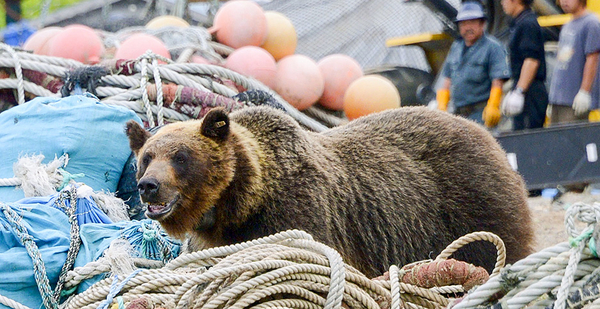Japan"s Gradual Depopulation Fails to Protect Biodiversity
As Japan grapples with a shrinking population, one might expect a renaissance in its natural ecosystems. However, the reality is starkly different. Research has shown that despite fewer people, biodiversity continues to plummet. This phenomenon challenges the notion that a declining human footprint automatically leads to environmental recovery. According to a study published in Nature Sustainability, biodiversity across Japan is still on a downward trajectory, irrespective of population trends.
Empty Homes and Abandoned Farmland Contribute to Ecological Decline
Japan’s landscape is increasingly dotted with akiya—abandoned homes that now make up nearly 15% of the national housing stock. This deterioration of human settlements should ideally allow nature to reclaim its space. Yet, the reality is that many once-thriving agricultural lands are being consolidated into intensive farming or repurposed for urban development. As reported by WWF, global wildlife populations have suffered a catastrophic 73% decline since 1970, with Japan exemplifying how poor land management practices can exacerbate this trend.

As Japan"s rural towns shrink, bears move in - E&E News by ...
Misguided Notions of Environmental Recovery
The emerging narrative that depopulation will lead to environmental salvation is dangerously misleading. According to a comprehensive dataset of 1.5 million species observations from Japan, areas that have experienced the most significant population declines do not see corresponding increases in biodiversity. Instead, the land is often abandoned or mismanaged, leading to a proliferation of non-native species that further disrupt the ecosystem. This erosion of biodiversity reflects a systemic failure of environmental policy that prioritizes economic development over ecological integrity.
Social Justice Implications of Land Management
The intersection of social justice and environmental policy is crucial in understanding Japan"s ecological crisis. As traditional agricultural practices decline, marginalized communities face the brunt of these changes. Local farmers, who have maintained biodiversity through sustainable practices, are losing their livelihoods to urban development and industrial agriculture. This shift not only threatens their economic stability but also undermines the cultural practices and knowledge that contribute to ecological balance. A lack of investment in community-led conservation initiatives exacerbates these inequities, leaving vulnerable populations without the resources to manage their environments sustainably.

Japan must save its falling birth rate "now or never," PM ...
Urgent Need for Active Biodiversity Management
To mitigate the ongoing biodiversity crisis in depopulating areas, a proactive approach is essential. Research indicates that biodiversity recovery requires active management, particularly in regions experiencing significant demographic shifts. Local authorities should be empowered to transform disused lands into community-managed conservancies, fostering local stewardship of natural resources. As argued by environmental experts, the focus should shift from building more infrastructure for an ever-dwindling population to investing in ecological restoration and sustainable land use practices. This paradigm shift could provide a much-needed lifeline for biodiversity while promoting social equity.



![[Video] Mount Etna erupts in Sicily, lava reaches 400 meters, yellow alert issued](/_next/image?url=%2Fapi%2Fimage%2Fthumbnails%2Fthumbnail-1766917884234-2sqn18-thumbnail.jpg&w=3840&q=75)
![[Video] Hawaii's Kilauea volcano erupts, fountains reach 70 ft, USGS reports](/_next/image?url=%2Fapi%2Fimage%2Fthumbnails%2Fthumbnail-1766574042820-tucull-thumbnail.jpg&w=3840&q=75)


![[Video] Gunfire between Iraqi security forces and Sadr militias in Baghdad](/_next/image?url=%2Fapi%2Fimage%2Fthumbnails%2Fthumbnail-1768343508874-4redb-thumbnail.jpg&w=3840&q=75)
